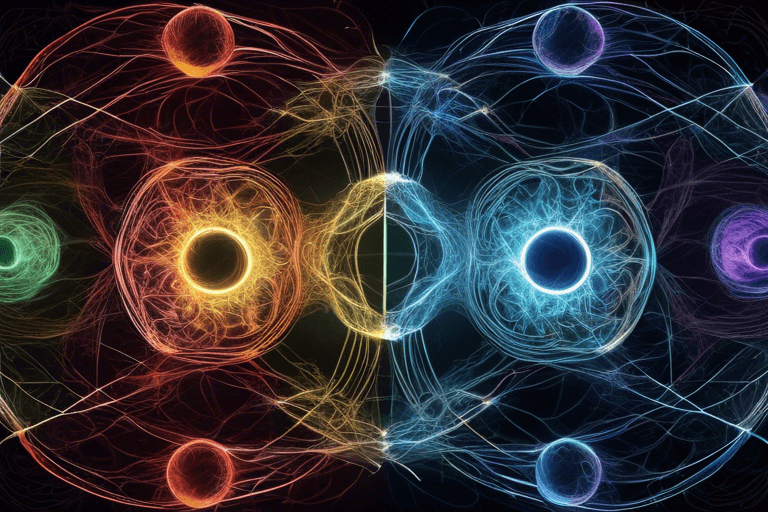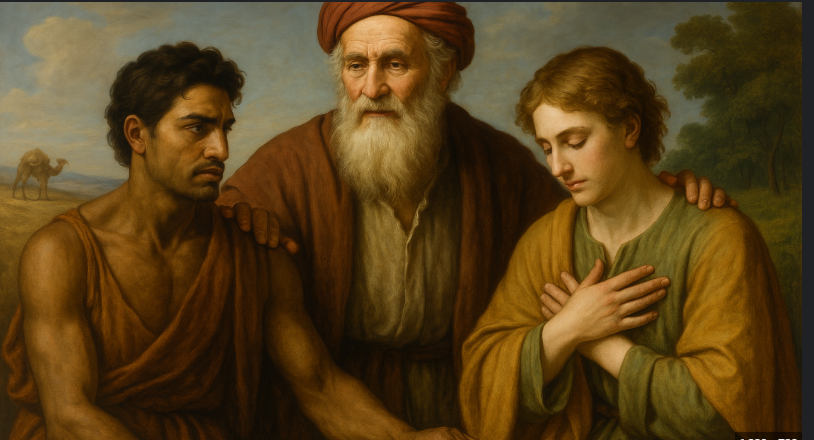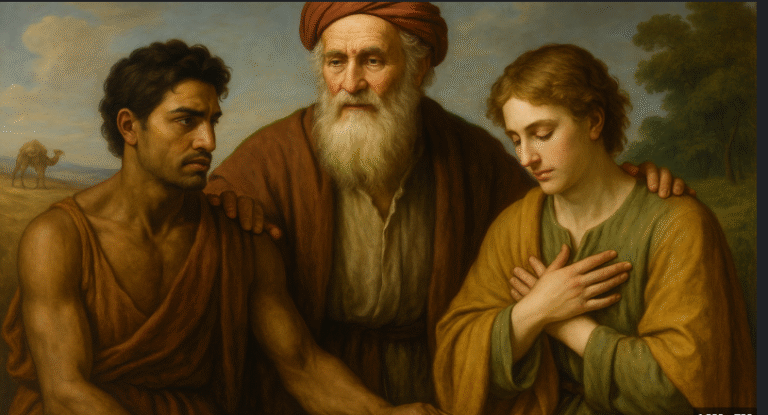How Does Quantum Mechanics Relate to Spirituality?
Quantum mechanics and spirituality intersect at several key points, where scientific discoveries and spiritual principles align:
1. The Observer Effect: The Power of Consciousness
In quantum mechanics, the observer effect states that the act of observation influences the behavior of quantum particles. For example, particles in a superposition state (existing in multiple states simultaneously) collapse into a single state when measured. This suggests that consciousness plays a role in shaping physical reality.
- Spiritual Connection: Spiritual traditions often emphasize the power of the mind and consciousness in shaping our experiences. The observer effect mirrors spiritual teachings that suggest our thoughts and intentions influence the world around us.
2. Quantum Entanglement: The Principle of Interconnectedness
Quantum entanglement refers to the phenomenon where two or more particles become interconnected, such that the state of one particle instantly affects the state of the other, regardless of the distance between them. This defies classical physics and suggests a deep, underlying connection between entities in the universe.
- Spiritual Connection: Many spiritual systems, such as Buddhism and Hinduism, uphold the principle of oneness—the idea that everything in the universe is interconnected. Quantum entanglement provides a scientific perspective on this interconnectedness, reinforcing the spiritual concept of unity.
3. Quantum Superposition: Infinite Potential
Superposition is the idea that particles exist in multiple states simultaneously until they are observed or measured. For instance, an electron can be in two places at once before its position is determined.
- Spiritual Connection: This aligns with spiritual beliefs about infinite potential and possibilities. Many spiritual philosophies assert that reality is fluid and shaped by our intentions, much like the probabilistic nature of particles in superposition.
4. The Concept of Oneness
Quantum mechanics suggests that the universe operates as a unified whole, where the distinctions between objects and entities blur at the quantum level. This aligns with the spiritual idea of oneness, where all things are interconnected and part of a greater whole.
- Spiritual Connection: Ancient spiritual texts, such as the Vedas and Taoist philosophies, emphasize the unity of existence. Quantum mechanics provides a scientific lens to understand this principle, reinforcing the idea that separation is an illusion.
5. The Nature of Time
In quantum physics, time is not linear but rather exists as an eternal continuum. Some interpretations suggest that time is an indestructible dimension that governs all motion.
- Spiritual Connection: This concept is similar to spiritual teachings found in ancient texts like the Vedas, which describe time as eternal and omnipresent. Such parallels deepen our understanding of time as both a physical and spiritual entity.
6. Quantum Theories and Spiritual Wisdom
Many quantum theories, such as wave-particle duality and the multiverse hypothesis, echo ancient spiritual ideas. For example, the duality of light behaving as both a particle and a wave reflects the yin-yang balance in Taoism, where opposites coexist harmoniously.
- Spiritual Connection: Ancient spiritual systems have long proposed that reality is multidimensional and ever-changing. Quantum mechanics adds scientific depth to these age-old concepts, suggesting that science and spirituality may be exploring the same truths through different lenses.
The Importance of Quantum Mechanics in Spirituality
Quantum mechanics plays a vital role in spirituality by offering a scientific framework to explore existential questions and fostering a deeper understanding of reality:
1. Expanding Consciousness
Quantum mechanics challenges conventional notions of reality, encouraging us to think beyond the material world. By understanding quantum phenomena, we gain insights into the nature of consciousness and its role in shaping our experiences.
2. Bridging Science and Spirituality
Quantum physics provides a common ground where science and spirituality meet. It validates certain spiritual principles while inviting spiritual interpretations of scientific discoveries, fostering dialogue and integration between the two fields.
3. Enhancing Spiritual Practices
Understanding quantum concepts can deepen spiritual practices such as meditation and mindfulness. For example, the idea of interconnectedness in quantum mechanics can inspire greater compassion and empathy, essential elements of spiritual growth.
Exploring Quantum Physics and Spiritual Enlightenment
The connection between quantum mechanics and spirituality extends to the pursuit of spiritual enlightenment. Here are some ways quantum mechanics can inform spiritual awakening:
1. Understanding Reality
Quantum mechanics reveals that reality is not fixed but dynamic and influenced by observation. This aligns with spiritual teachings that encourage individuals to question their perceptions and seek deeper truths about existence.
2. Embracing Uncertainty
The uncertainty principle in quantum mechanics, which states that certain properties of particles cannot be known simultaneously, mirrors the spiritual acceptance of life’s unpredictability. Embracing uncertainty can lead to personal growth and spiritual liberation.
3. Experiencing Unity
Quantum entanglement demonstrates that separation is an illusion. This scientific principle can inspire spiritual experiences of unity and interconnectedness, fostering a sense of belonging in the universe.















